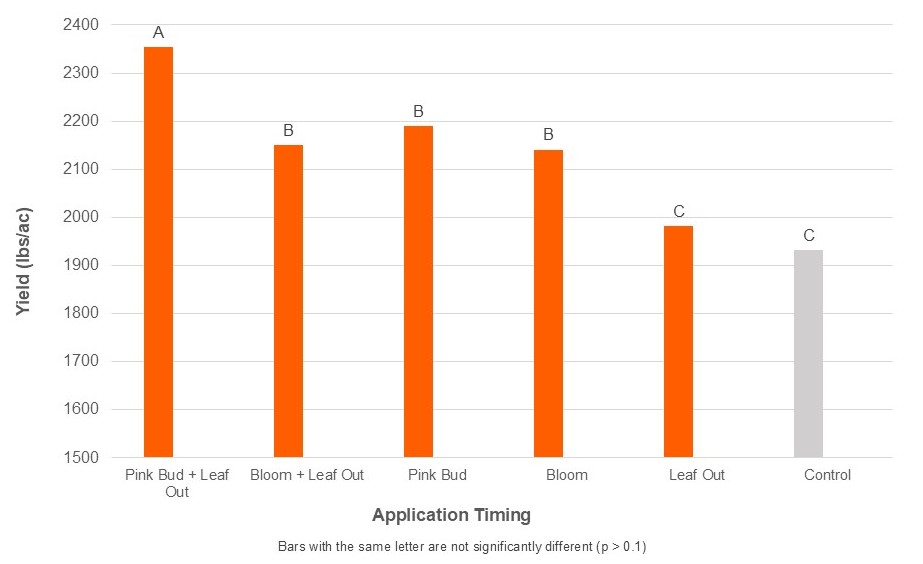
Find a Rep or Retailer
With our network of knowledgeable representatives, retailers and distributors, you can be confident you will get the best solution for your unique needs. Find your nearest Koch Agronomic Services, LLC, representative.

1 Virginia Tech and adapted from volatilization measurements made by Hunter Frame, VA Tech (2016) under Research Trial Financial Support Agreements with Koch Agronomic Services, LLC and neither the university, nor the individual researchers referenced, endorse or recommend any product or service.
2 The underlying data is based on third-party laboratory studies funded by Koch Agronomic Services; results may vary based on a number of factors, including environmental conditions.
3 Iowa State University and University of Missouri under a Research Trial Financial Support Agreement with Koch Agronomic Services, LLC. Neither the universities or institutions, nor the individual researchers referenced, endorse or recommend any product or service. Improvements in nutrient use efficiency, yield and nitrate leaching may not be observed in all cases.
Privacy Policy · Do Not Sell or Share My Personal Information · California Supply Chain Transparency · Modern Slavery Statement · Terms of Use · Patent Information
AGROTAIN™, the AGROTAIN logo, ANVOL™, the ANVOL logo, CENTURO™, the CENTURO logo, ARMOUR™, the ARMOUR logo, OPTRIENT™, the OPTRIENT logo, N-TEGRATION™, the N-TEGRATION logo, SUPERU™, and the SUPERU logo, TRIBUNE™, the TRIBUNE logo, WOLF TRAX™, the WOLF TRAX logo, PROTIVATE™, the PROTIVATE logo, PHOSFORCE™, the PHOSFORCE logo, 3-TRAX™, DDP™, CROP MIX™, NU-TRAX™ and EVENCOAT™ are trademarks of Koch Agronomic Services, LLC. Koch, the Koch logo and Principle Based Management™ are trademarks of Koch IP Holdings, LLC. © 2026 Koch Agronomic Services, LLC. All Rights Reserved.
1. EPA EEF Challenge Submission data: 30% reduction - corn (Chatterjee et al, 2016); 34% reduction - corn (Chatterjee et al, 2016); 45% reduction - corn (Yang et al, 2016); 35% reduction - corn (Eagle et al, 2017); 48% reduction - irrigated no-till corn (Halvorson et al, 2010); 53% reduction - semi-arid irrigated corn (Dugan et al, 2017); 43.8% reduction - sandy loam soil (Awale and Chatterjee, 2017).
The data and material contained herein are provided for informational purposes only. No warranty, express or implied, is made including, but not limited to, implied warranties of merchantability and fitness for a particular purpose, which are specifically excluded. Results may vary based on a number of factors, including environmental conditions. Before use, consult the product packaging and labeling for information regarding the product's characteristics, uses, safety, efficacy, hazards and health effects.
Not all products may be available in your jurisdiction.
CENTURO is not registered for sale or use in all jurisdictions. In the United States, contact your state pesticide regulatory agency to determine if a product is registered for sale or use in your state. Results may vary based on a number of factors, including environmental conditions. Improvements in nutrient use efficiency, yield and nitrate leaching may not be observed in all cases.
OPTRIENT MoCo-Ni is not registered for use or sale in all states.
PROTIVATE NU5-LUX is not available for sale, use or distribution in California.


